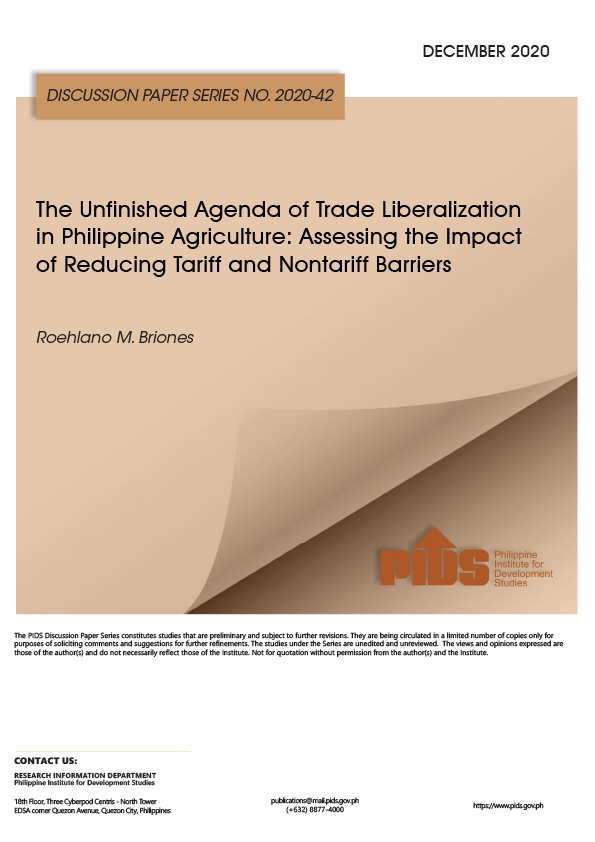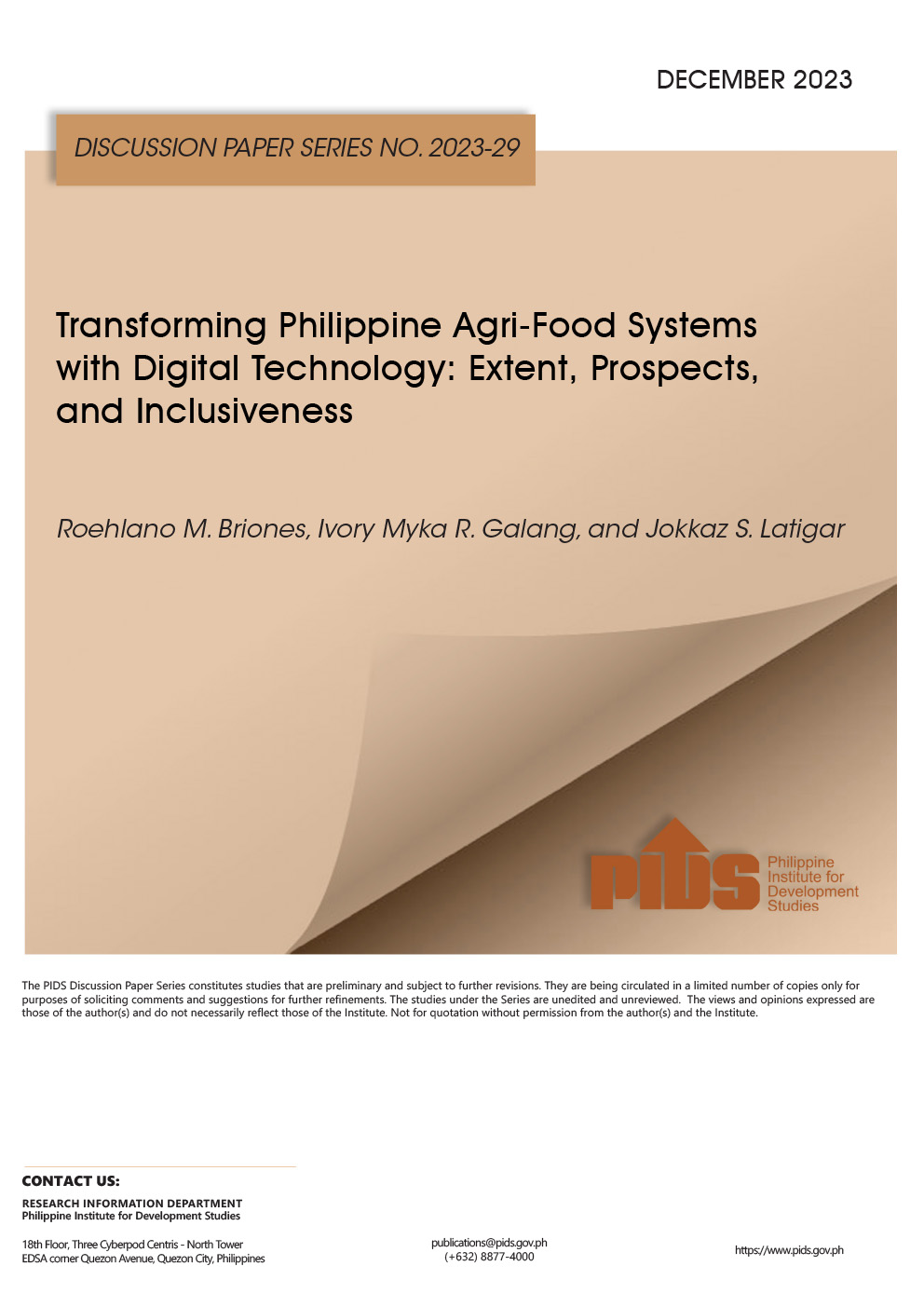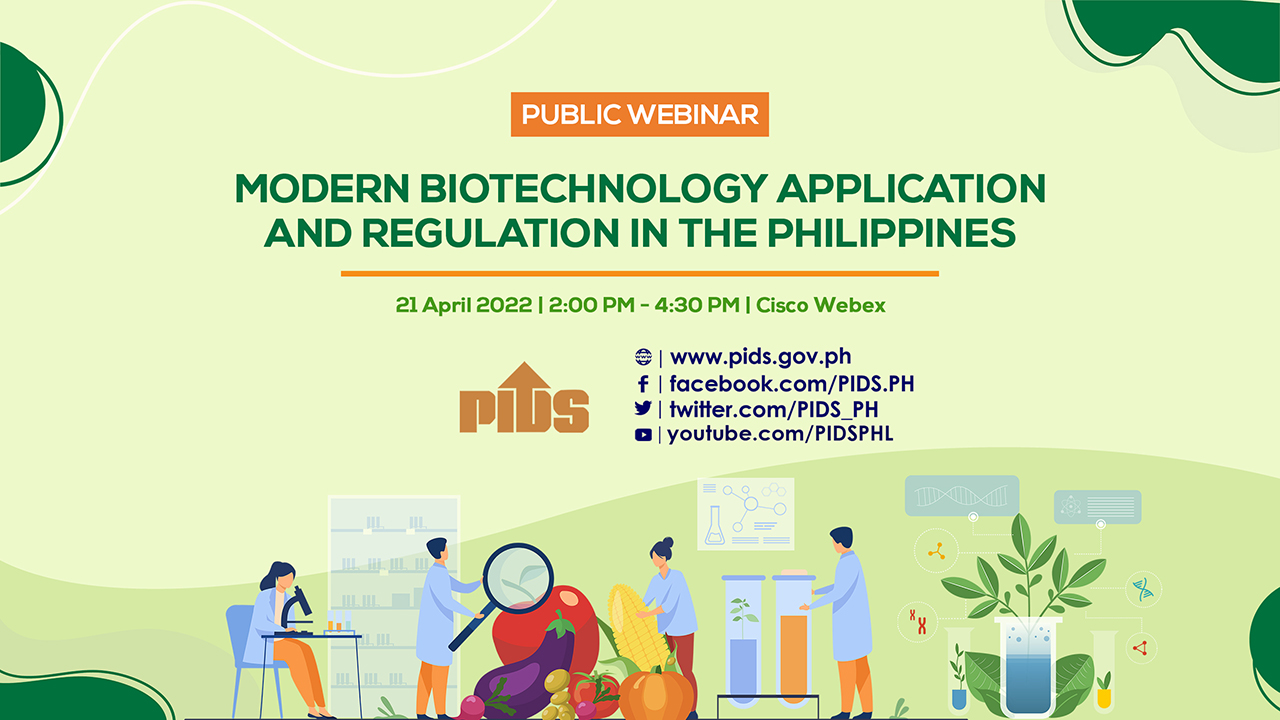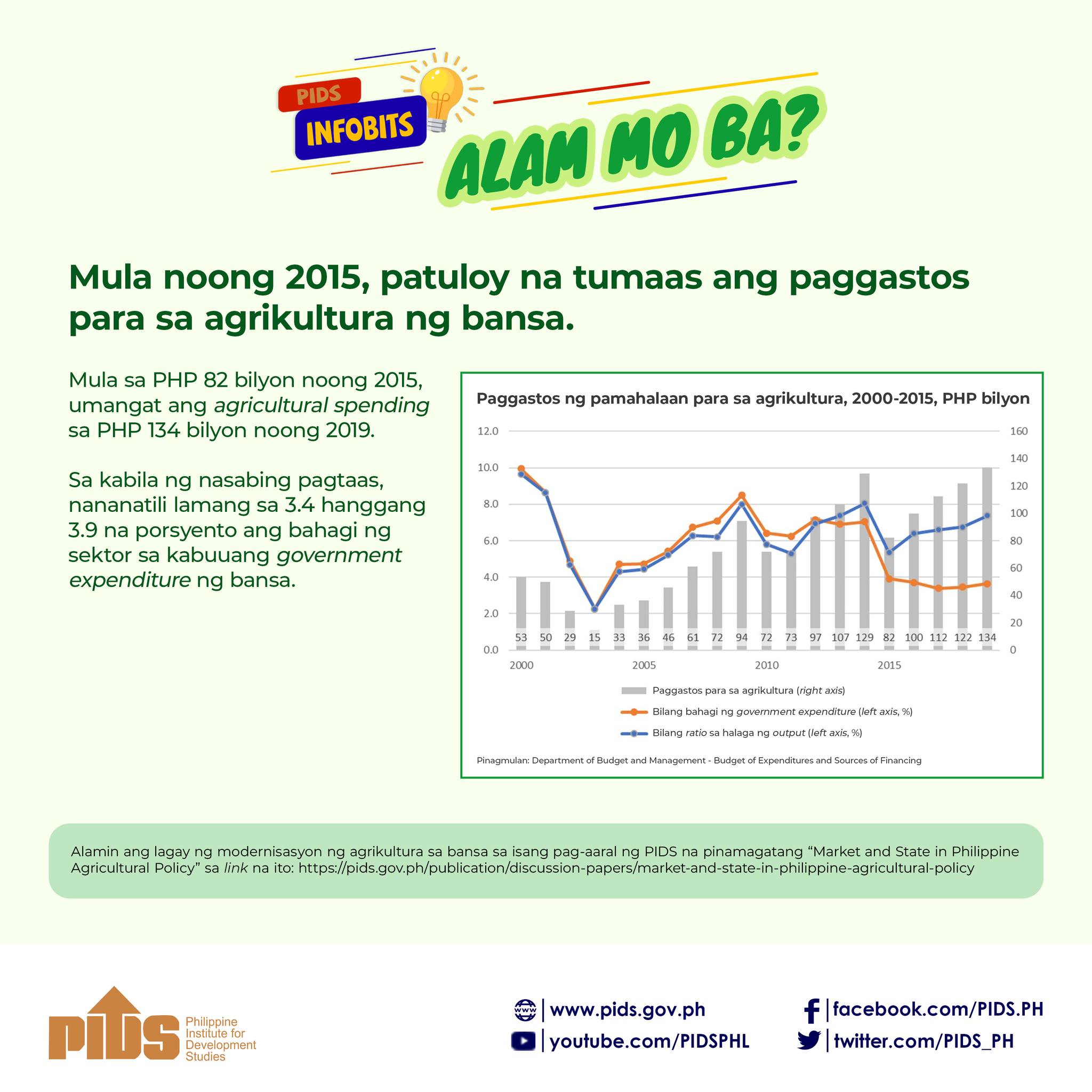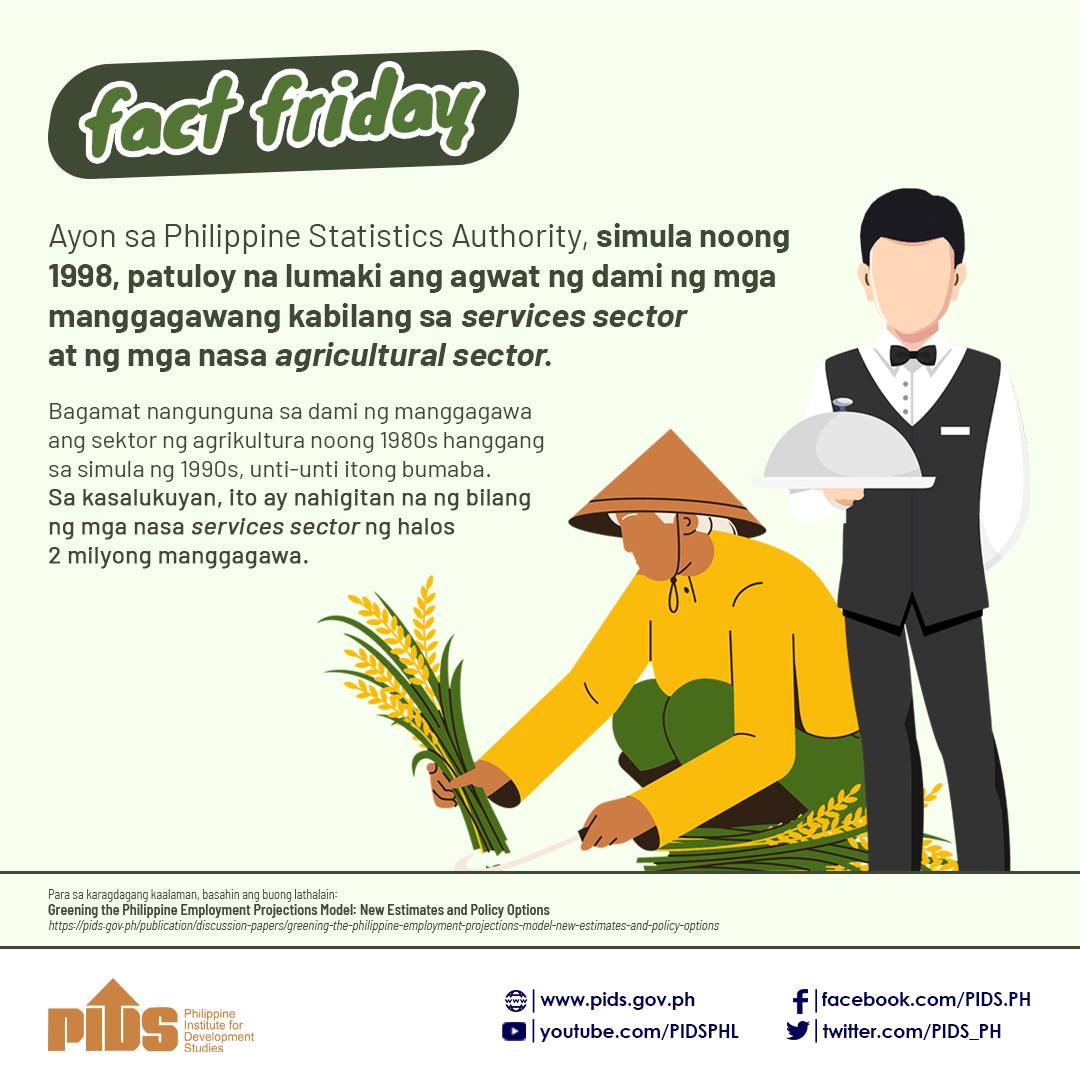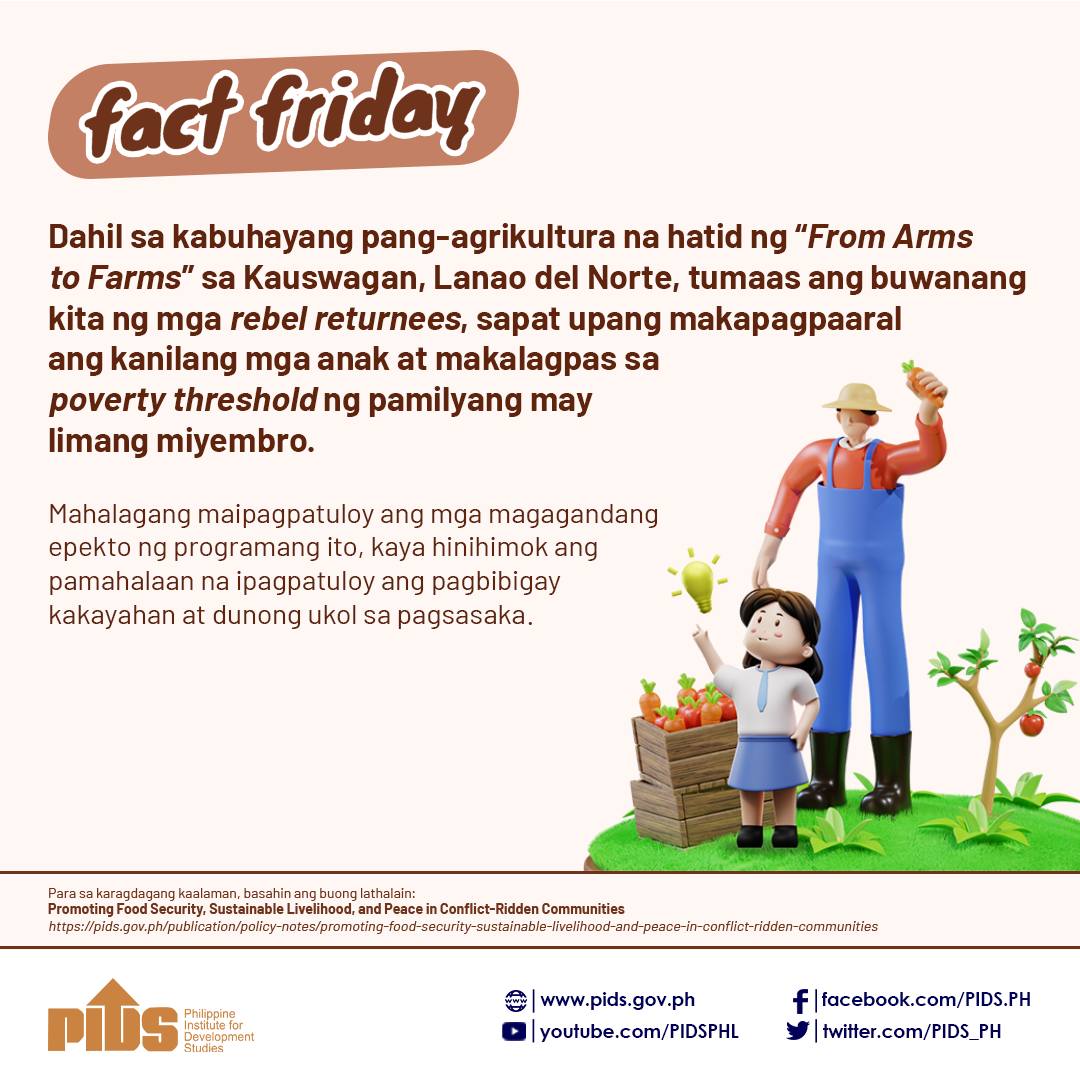Much progress has been made in pursuing liberalization of agricultural trade in the Philippines. However, some significant tariff and non-tariff barriers remain. This study evaluates the economic impacts of completing the agenda of policy reform by removal of these remaining trade barriers. Scenario analysis using computable general equilibrium modeling finds that trade liberalization is associated with a more rapid expansion in imports and a wider agricultural trade deficit; slower growth of agricultural GDP and wages; higher overall GDP and higher industry- fiscal position and national savings. Liberalization radically accelerates growth of imports for Hogs, and Sugar, while slowing down export contraction of Coconut, Banana, Mango, and most other exports. It slows down output growth of most import substituting goods, while accelerating output growth of export-oriented sectors. Trade liberalization also accelerates growth in per capita consumption, as well as total per capita expenditure. Lastly, it increases social welfare, though the gain is small in relation to base year expenditure.
Comments to this paper are welcome within 60 days from date of posting.
Email publications@mail.pids.gov.ph.

